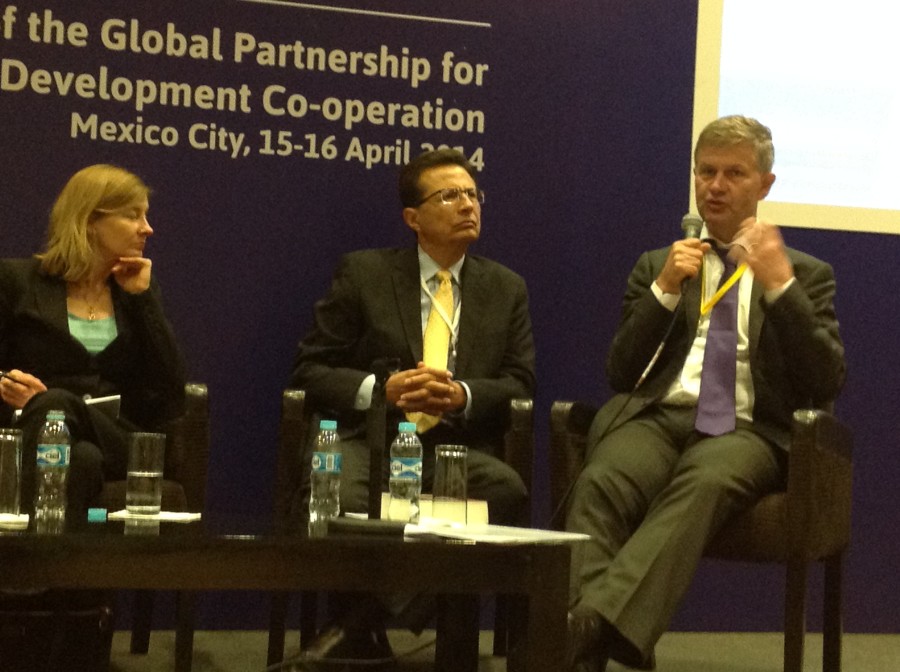An update from the First High-Level Meeting of the Global Partnership for Effective Development Cooperation
Erik Solheim is the kind of development professional who would be most inclined to argue for the important role of media in development.
The chair of the Development Assistance Committee of the OECD, he hails from Norway, one of the world’s leading countries in press freedom and good governance. Since Solheim took the helm of the DAC, the OECD has taken an important initiative on this topic, hosting an important work stream about the role of media in development and accountability.
But as one of the leading voices here at a meeting of more than 1500 development ministers and practitioners, Solheim worried that he had seen media doing more harm than good to developing countries. In his role trying to resolve conflicts in Sri Lanka, Burundi, Nepal, Myanmar, and Sudan, he said he had too often seen media trying to whip up political disputes, exaggerate ethnic differences, and fan the flames of war.
Solheim’s misgivings about role of media represent a major challenge to the media development community, and this conundrum was on full display here as donors and partner countries met to discuss global priorities and approaches to development. While almost everyone—Solheim included—agrees that an independent and professional media is an essential ingredient to successful and sustainable development, no one was ready to go to the mat and argue that media development should be an explicit priority for the Global Partnership.
To overcome these misgivings, the media community will need not only to counter the hostility of countries like China and Russia, but also build a stronger case for the “value added” of media development. We need more examples of countries that manage to reform their media sectors, and create trustworthy, credible media that informs the public and holds governments accountable.
The toughest part of this challenge is that we are living in a world where the media is under growing economic and political pressures, and the enabling environment for independent media is deteriorating. At a special so-called focus sessions on media organized by BBC Media Action, CIMA and the Global Forum for Media Development, each of the panelists expressed worries about media in developing countries that was controlled either by governments or other partisan interests and that make the media a less effective institution of good governance. This situation is creating a growing perception that media is not supporting development, not helping countries reach consensus, nor offering a forum for constructive debates about how people can tackle development problems.
To tackle these negative outcomes in the media sector, media development needs to be more carefully integrated within the overall development agenda. Media sector analysis needs to be part of the overall diagnostic processes that set country level development objectives, and public sector reforms need to focus more carefully on the enabling environment that creates an effective and professional media.
But while almost everyone agrees that a professional, independent media sector is a critical goal that would improve the prospects for sustainable development, the meeting here in Mexico City is further proof that that the bad apples are making the whole cart look unappetizing. As we look forward to the post-2015 agenda, a United Nations process that aims to replace the Millennium Development Goals with a new set of targets, we need to strengthen our arguments for integrating media into the core of development.
************
For more on this issue, read my previous post, Improving development assistance: Can it be done without the media?


Comments (0)